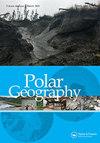模糊的男子气概在萨哈共和国,俄罗斯
IF 1.6
Q3 GEOGRAPHY, PHYSICAL
引用次数: 4
摘要
西伯利亚一般传统上是一个地区,男人被期望是“真正的”男人,也就是说,以一种明显的男子气概的方式行事。这种看法与该地区的历史有关——给该地区带来“文明”与密集的体力劳动直接相关。西伯利亚的城市生活直到最近才被这种无产阶级男子气概所主导,因为城市中心是大部分产业工人居住的地方。随着西方式的城市化和新型企业的出现,这种观念正在改变。新的城市专业阶层主要从事办公室工作,从事非体力劳动。这篇文章解释了社会经济因素如何在历史上塑造了西伯利亚对男子气概的看法和表现。此外,我将萨哈共和国的“软”和“硬”男子气概并列。在这个地区,柔软通常与办公室工作有关。虽然某些男性的刻板印象仍然存在——比如可靠、负责、忠诚——但对坚韧的传统理解往往被拒绝。我把人们对酒精消费态度的变化作为一个范例。正如我将在文章末尾指出的那样,更多样化和“更柔和”形式的男性气概的出现通常不会质疑现有的性别等级制度。本文章由计算机程序翻译,如有差异,请以英文原文为准。
Blurring masculinities in the Republic of Sakha, Russia
ABSTRACT Siberia in general has traditionally been a region where men are expected to be ‘real’ men, i.e. to behave in a pronouncedly virile way. This perception is related to the history of the region – bringing ‘civilisation’ to the region was in direct relation to the intensive physical work. Urban life in Siberia was until recently dominated by such proletarian masculinity since urban centres were places where a large part of industrial workers lived. With the Western style urbanization and advent of new enterprises, this perception is changing. The new urban professional class mostly holds office jobs and is engaged in non-physical work. The article explains how socioeconomic factors have historically shaped the perceptions and performances of masculinity in Siberia. Further, I juxtapose ‘soft’ and ‘hard’ masculinity in the Republic of Sakha. In this region, softness is usually related with the office jobs. While certain masculine stereotypes continue to exist – like reliability, responsibility, loyalty – traditional understanding of toughness is often rejected. As one paradigm, I take the changes in attitudes towards alcohol consumption. The emergence of more diverse and ‘softer’ forms of masculinity do not generally question existing gender hierarchies, as I will point out toward the end of the article.
求助全文
通过发布文献求助,成功后即可免费获取论文全文。
去求助
来源期刊

Polar Geography
GEOGRAPHY, PHYSICAL-
CiteScore
5.30
自引率
0.00%
发文量
13
期刊介绍:
Polar Geographyis a quarterly publication that offers a venue for scholarly research on the physical and human aspects of the Polar Regions. The journal seeks to address the component interplay of the natural systems, the complex historical, political, economic, cultural, diplomatic, and security issues, and the interchange amongst them. As such, the journal welcomes comparative approaches, critical scholarship, and alternative and disparate perspectives from around the globe. The journal offers scientists a venue for publishing longer papers such as might result from distillation of a thesis, or review papers that place in global context results from coordinated national and international efforts currently underway in both Polar Regions.
 求助内容:
求助内容: 应助结果提醒方式:
应助结果提醒方式:


